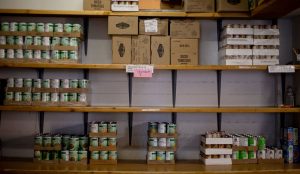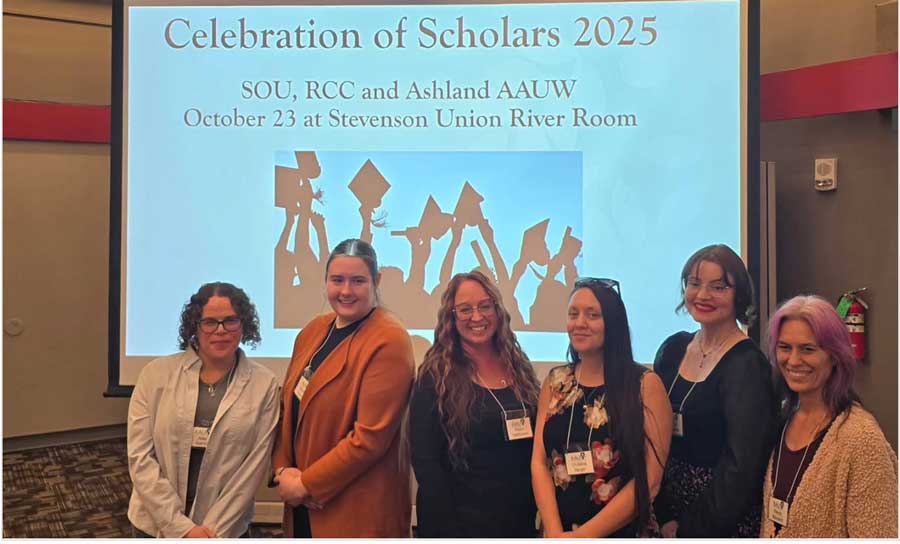Contribution rises from $35,000 to $500,000 for business incubator; overall project calls for mix of commercial and residential space
By Tony Boom for the Rogue Valley Times
Talent Urban Renewal Agency has voted to allocate $500,000 toward funding a possible business incubator space at the Gateway project site off Highway 99 after a state agency that awarded $4.7 million in fire relief funds asked for more details before it shifts $1.25 million of a grant to support the proposed space.
TURA board members voted 5-1 to up the agency’s contribution from $35,000 to $500,000 at their Nov. 5 meeting. Board member Rosario Medina cast the dissenting vote after saying some Talent community members did not think there was transparency around the project.
Oregon Housing and Community Services awarded the $4.7 million last year as part of the Planning, Infrastructure, and Economic Development (PIER) program. That award has three parts.
Improvement to streets in the Gangnes Loop area adjacent to Gateway are budgeted at $1.9 million. Infrastructure and development at the 4.3-acre Gateway site was projected at $1.3 million. Another $1.3 million was to secure a right of way through the Talent Irrigation District site to link the roundabout on West Valley View to Wagner Street.
But negotiations between TURA and TID were not successful, leading to the urban renewal agency seeking to shift funds to develop a business incubator site, perhaps focused on food, as part of the Gateway project.

TURA purchased the Gateway site at the corner of Highway 99 and West Valley View Road in 2015. Several attempts to develop the site with a mix of commercial building and residential units have not succeeded. Following the 2020 Almeda Fire, the site was used for 78 trailer units to provide housing for fire survivors.
A Request for Qualifications was issued Oct. 19 seeking a firm to develop the Gateway site. There is a Nov. 14 deadline for submissions. No submissions had been received as of Thursday, Nov. 6.
The RFQ calls for a mix of commercial and residential units on the site. The housing would be targeted toward those with income of 80% to 120% of area median income. A 2022 report on the Gateway site by Salazar Architects showed residents taking up two-thirds of the site with commercial development on the other part.
Depending on an agreement reached between a selected developer and TURA, the site might be sold. The sales price of the land might be discounted, a common practice for urban renewal agencies that seek to develop land. In addition, system development fees and other charges related to construction might be reduced. In a city document, it was estimated that sale of the property might bring $1 million.
Funding for PIER projects comes from a federal Community Development Block Grant award of $422 million made to Oregon following the 2020 Labor Day Fires. OHCS was appointed to administer the funds. All funding needs to be used by February 2029.

The regional PIER Advisory Committee had recommended that OHCS approve the city’s request to dedicate $1.25 million of the total city PIER award to construct a business incubator.
But OHCS wanted information on funds committed toward creating the incubator.
“They are not interested in funding a project that won’t succeed,” said TURA Executive Director Alex Campbell. The RFQ describes the business incubator as a public-private development.
If the shift is allowed, the funds would likely be spent on a building to house the incubator. The TURA funds would help with building construction.
A Request for Interest has been issued for parties that might be interested in developing and operating an incubator. Letters of interest are needed by Dec. 15.
“We are likely to respond to a letter of interest,” said TURA board member Colette Pare-Miller, who is involved with the Talent Business Alliance. She declared a potential conflict of interest due to her TBA link.
Darby Ayers-Flood, Talent’s mayor and TURA chair, also declared a potential conflict of interest as executive director of TBA. TURA’s board of directors is comprised of the six Talent city councilors.
TURA commissioned a report on the commercial marketing feasibility of the Gateway site. That work has been completed by Leland Consulting.
A second report on the market feasibility of the proposed Gateway Hub marketplace, retail store, commissary kitchen, education and co-working space is being developed by Marketek for the business alliance. That report is funded by a $19,800 Ford Family Foundation grant and a $9,000 grant from TURA. It is expected to be finished by the end of the year.
Campbell said he hopes to have an infrastructure design contract with RH2 Engineering for the other project components ready for board review at the next meeting.
“Some in the community feel we are not being transparent, we are not having listening sessions,” Medina said during deliberations on the funding issue. After a motion to approve was made, Ayers-Flood recounted a history of public involvement in shaping the development since 2015. She said an incubator was called for at several times during those processes.
In other business, TURA board members approved a motion on how an ad hoc selection committee to judge the RFQs will operate. It calls for Ayers-Flood and board members David Pastizzo and Daniel Collay to screen the applicants initially, then for the entire board to review and choose a developer to work with.
Reach Ashland freelance writer Tony Boom at tboomwriter@gmail.com. This story first appeared in the Rogue Valley Times.




















